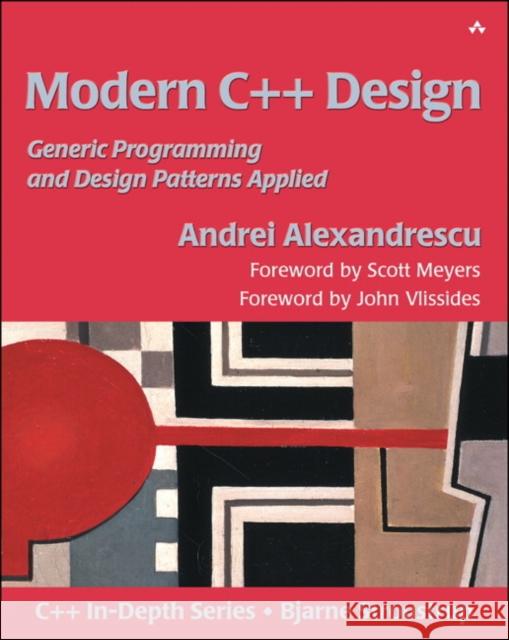Modern C++ Design: Generic Programming and Design Patterns Applied » książka
Modern C++ Design: Generic Programming and Design Patterns Applied
ISBN-13: 9780201704310 / Angielski / Miękka / 2001 / 360 str.
In Modern C++ Design , Andrei Alexandrescu opens new vistas for C++ programmers. Displaying extraordinary creativity and programming virtuosity, Alexandrescu offers a cutting-edge approach to design that unites design patterns, generic programming, and C++, enabling programmers to achieve expressive, flexible, and highly reusable code. This book introduces the concept of generic components--reusable design templates that produce boilerplate code for compiler consumption--all within C++. Generic components enable an easier and more seamless transition from design to application code, generate code that better expresses the original design intention, and support the reuse of design structures with minimal recoding. The author describes the specific C++ techniques and features that are used in building generic components and goes on to implement industrial strength generic components for real-world applications. Recurring issues that C++ developers face in their day-to-day activity are discussed in depth and implemented in a generic way. These include:
- Policy-based design for flexibility
- Partial template specialization
- Typelists--powerful type manipulation structures
- Patterns such as Visitor, Singleton, Command, and Factories
- Multi-method engines
Achieve more with C++ than you ever imagined possible!Introduces generic components , which offer breakthrough power for maximizing expressiveness, flexibility, and reuse of code.Readers will learn exciting, powerful new C++ idioms that will help them master the most modern library writing techniques.Forewords by Scott Meyers ( Effective C++ ), one of the worlds leading C++ experts, and by John Vlissides, of the IBM T.J. Watson Research center, one of the worlds leading patterns experts. In Modern C++ Design , Andrei Alexandrescu opens new vistas for C++ programmers. Displaying extraordinary creativity and virtuosity, Alexandrescu offers a cutting-edge approach to software design that unites design patterns, generic programming, and C++, enabling programmers to achieve expressive, flexible, and highly reusable code. The book introduces the concept of generic components, reusable design templates that enable an easier and more seamless transition from design to application code, generate code that better expresses the original design intention, and support the reuse of design structures with minimal recoding. The author then shows how to apply this approach to recurring, real-world issues that C++ programmers face in their day-to-day activity. All code is available on the Web, along with Alexandrescus downloadable Loki C++ library, which provides powerful out-of-the-box functionality for virtually any C++ project. For experienced C++ programmers who have at least some familiarity with the Standard Template Library (STL).











